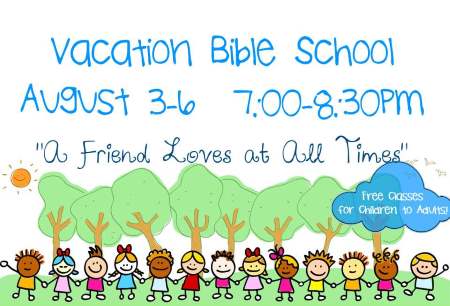 Articles in this section are from the past 6 to 12 months,
Articles in this section are from the past 6 to 12 months,
 Historian Doris Kearns Goodwin, in her wonderful little memoir, Wait Till Next Year, tells about an evening ritual she and her father shared on summer evenings. He would return home to Long Island from his job in the City having missed the Dodgers game. He had shown his young daughter how to keep a box score. They would sit on the sofa with the box score of the day’s game between them, and from it, Doris would recreate the game for her father. It was her primary training as a historian. Only years later did she find out that her father had already listened to the games on the radio.
Historian Doris Kearns Goodwin, in her wonderful little memoir, Wait Till Next Year, tells about an evening ritual she and her father shared on summer evenings. He would return home to Long Island from his job in the City having missed the Dodgers game. He had shown his young daughter how to keep a box score. They would sit on the sofa with the box score of the day’s game between them, and from it, Doris would recreate the game for her father. It was her primary training as a historian. Only years later did she find out that her father had already listened to the games on the radio.
As children head to school this fall, I am reminded of being seven or eight years old. Every day the school bus stopped in front of our little rambler, and my two enormous collies who had been sitting as sentinels in our front yard would come to greet me. When I entered the house my mother, over her ironing or cooking, would listen as long as it took, while I shared all I had learned that day.
Most of what spilled out was information: that Abraham Lincoln had been born in a cabin as small as our living room (imagine that! We would visit Lincoln’s birthplace several times when I was a boy); that .5=1/2; and that spiders were not insects, but arachnids. Who punched who, or who fell off the jungle gym interested me less than the fact that the entire State of Hawaii was volcanic. That personal information would have been more interesting to my mother than repeating facts she already possessed. She always acted like she was hearing the information for the first time, however, and so I kept on sharing. It was my primary training to be a preacher.
I feel like it is what I still do. I spend time in the Word, and then get to share what I learn with my family. What could be better?
I have had more than a score of summer interns, male and female, over the years, and at least four of them, faced with preparing a lesson, have said to me: “I don’t have anything to say.” I have told them all, “You don’t have to have anything to say. Just study your text and tell us what God says – if you do that well, you will have done everything important.” I believe that with all my heart.
Sharing the gospel is just that simple (which is not to say that it is easy). We have received good news. We have been asked to share it.
In order to do this we must listen to the Word. We must be excited by the word. We must care about those who need to hear. If we listen, and we care sharing the gospel is as natural as talking to mom after a long, productive day at school.
The stories in the Bible contain more information and more meaning that we would be able to exhaust in a thousand lifetimes. We will never finish listening and learning – which means we will never run out of things to tell.
 I have tactile issues with my technology. The issues are wholly mine, but are not created by irascibility on my part. I am trying to follow instructions. But when I make my fingers do what I have been told to do I end up doing everything wrong. I think the problem stems from my coming of age in the 1970’s. Back then we used lots of machines, and when you pressed a button, turned a knob, or flipped a switch you did it firmly, and immediately things happened. You weren’t delicate about it, and you didn’t have to wait awhile for things to load up. I learned to type on manual typewriter, and I can type really fast (although not as fast as my Dad who could type 90 words a minute without errors). But one had to strike the keys with authority. I always thought the clickety-clack of a typewriter was a pleasant sound. Nowadays as I type along some young person will invariably ask, “Are you angry?”, or, “Why do you hate your laptop so much?” “I’m just typing.” I will answer, and then they will come back with some criticism like, “Why don’t you use a hammer instead?” or "Good luck with that, grandpa."
I have tactile issues with my technology. The issues are wholly mine, but are not created by irascibility on my part. I am trying to follow instructions. But when I make my fingers do what I have been told to do I end up doing everything wrong. I think the problem stems from my coming of age in the 1970’s. Back then we used lots of machines, and when you pressed a button, turned a knob, or flipped a switch you did it firmly, and immediately things happened. You weren’t delicate about it, and you didn’t have to wait awhile for things to load up. I learned to type on manual typewriter, and I can type really fast (although not as fast as my Dad who could type 90 words a minute without errors). But one had to strike the keys with authority. I always thought the clickety-clack of a typewriter was a pleasant sound. Nowadays as I type along some young person will invariably ask, “Are you angry?”, or, “Why do you hate your laptop so much?” “I’m just typing.” I will answer, and then they will come back with some criticism like, “Why don’t you use a hammer instead?” or "Good luck with that, grandpa."
When I received my first Kindle as a 50th birthday present from the congregation, I was eager to get started. I was instructed to tap this place and that place and I did. Nothing happened. I was told that I was doing it all wrong, that a light touch was what worked. My instructor was right, a light touch was needed. I was irritated. If they wanted me to touch the screen then why did they tell me to tap it? If I was drumming my fingers on the table you would say “Stop tapping your fingers!” You wouldn’t say “Stop touching your fingers.” Why not be specific? If you want me to touch the screen tell me to touch the screen.
Two weeks ago I finally got a smart phone which I thoroughly enjoy (I don’t hate technology – I just expect it to make life easier – if it doesn’t then why use it?). But I had a hard time answering calls at first because it instructed me to “swipe in any direction” – which I did – to no effect. I was getting really angry at this when Jill showed me how to let my finger land on the pad for an instant, and then move it a bit more slowly across the surface. That worked. “This is not a swipe, it is a drag!” I pronounced. “If they wanted me to drag my finger across the face of the phone why did they tell me to swipe it?” “It is not a drag,” Jill explained, “a drag is when you move your finger from one specific spot to another specific spot.” Where do I read that definition - certainly not in the OED, or Webster’s? When I swipe my credit card I don’t rest it for a second then move it slowly – I swipe it. If that isn’t what they want me to do to answer my smart-phone they should say so.
The problem, of course, is not technological but etymological. The meanings of words evolve. Each sphere of endeavor has its own bag of words it uses in specialized ways. Kids who grew up tapping, swiping, and dragging their fingers on the surfaces of screens know exactly what to do.
One of the miracles of the Bible is that it defies this phenomenon. The Bible is so direct and clear that it transcends the limits of language – even the changing meanings of words.
A few weeks ago I wrote about those verses that describe God as showing a mother’s love. I subsequently presented this material to teens, some of whom had absent, neglectful, or abusive fathers. It meant so much to children for whom the word “father” held no positive meaning to listen to those verses describing God’s maternal care.
The Bible is not limited by culture, century, or continent. It communicates everything that pertains to life and godliness in comprehensible words. When we listen to it, and do what it says, we will always be right. God never says “tap” when He means “touch.”
 God consistently chooses the masculine personal pronoun to describe Himself. Yahweh is a He. The Holy Spirit is a He. The Son is a He. To His people He is a Father. I John 3.1: See how great a love the Father has bestowed upon us that we should be called children of God; and such we are. I Peter 1.17: And if you address as Father the One who impartially judges according to each man’s work, conduct yourselves in fear during the time of your stay upon the earth. God is our Father. We are His children.
God consistently chooses the masculine personal pronoun to describe Himself. Yahweh is a He. The Holy Spirit is a He. The Son is a He. To His people He is a Father. I John 3.1: See how great a love the Father has bestowed upon us that we should be called children of God; and such we are. I Peter 1.17: And if you address as Father the One who impartially judges according to each man’s work, conduct yourselves in fear during the time of your stay upon the earth. God is our Father. We are His children.
While we use Bible words for Bible things, we also understand from the Bible that God transcends any human categories. His image cannot be contained by then. Male and female together reflect the image of God (Genesis 1.27). Whereas it would be wrong to ever refer to God as “She,” we understand that “He” doesn’t contain all that God is.
There are times – more than we have noticed, I think – when God uses feminine metaphors to describe himself, either directly or through inspired writers. This is true in both Old and New Testaments. These feminine metaphors fall into three categories. First, there are passages where God describes Himself as a mother hen. Second, there are passages where God works inside the womb to form a child. Finally, there are passages which extol the maternal care that God provides.
God describes Himself as a mother hen. In You my soul takes refuge, in the shadow of Your wings I will take refuge till the storms of destruction pass by Psalm 57.1. How often would I have gathered you children together as a hen gathers her brood but you were unwilling Matthew 23. 35. All those biblical references to us taking cover beneath the wings of our God are references to a mother bird, and particularly a mother hen guarding her young.
God is active in the womb. For you formed my inward parts, and knitted me together in my mother’s womb Psalm 139.13. Before I formed you in the womb I knew you Jeremiah 1.5. Adam was formed in a manner different from the rest of creation. Galaxies and elephants, oceans and peonies were spoken into existence. But God formed Adam from the clay, and breathed into his nostrils the breath of life (Genesis 2.7). God was active in forming the substance of Adam, and invested Adam with life. So also for all of us - God is active in our mother’s womb, forming us, and God gives us a spirit which returns to Him when our body expires (Ecclesiastes 12.7).
God provides us with maternal care. As one whom his mother comforts, so I will comfort you Isaiah 66.14. I have calmed and quieted my soul like a weaned child with its mother. Like a weaned child is my soul within me Psalm 131.2. God provides the love we get from our mother as well as the love we get from our father. In Hosea 11 he describes how he cared for Israel like a mother taking care of a toddler – holding Israel’s hand, teaching Israel to walk, hand-feeding Israel.
God is our father. He says so over and over again. But that word, “father,” is under siege. It is being emptied of its meaning for so many of us. Only a third of the children born this millennia will grow to maturity in the regular presence of a father. Add to those absent fathers, those who are abusive, inattentive, antagonistic, and cold and we understand the challenge we face sharing the message of His word. Such dire circumstances will create a longing for a loving father – a longing only God can satisfy. In order to reach everyone with the message of John 3.16, God describes His love for us as maternal as well as paternal.
And so we cannot misunderstand. He loves us like a dad. He loves us like a mom. He is love.
A friend loves at all times. Proverbs 17.17
 Our Vacation Bible School 2015 begins next week. It runs Monday, August 3 through the 6th from 7:00 to 8:30 each evening. We begin registration at 6:30, and encourage you to bring your children as early as possible. We have classes for children from nursery through sixth grade, as well as an adult class. As most of our teens are working VBS, we haven’t scheduled a youth class. All youth are invited to join the adult class. There will be some major changes to Vacation Bible School, as we have been blessed to open our new Education & Activity Center.
Our Vacation Bible School 2015 begins next week. It runs Monday, August 3 through the 6th from 7:00 to 8:30 each evening. We begin registration at 6:30, and encourage you to bring your children as early as possible. We have classes for children from nursery through sixth grade, as well as an adult class. As most of our teens are working VBS, we haven’t scheduled a youth class. All youth are invited to join the adult class. There will be some major changes to Vacation Bible School, as we have been blessed to open our new Education & Activity Center.
This year we will move the Assembly from the Auditorium to the Fellowship Room. We will begin singing at 6:45 and the children will come directly into the Fellowship Room to sit with their group. Also this year we will make the Bible story our singular focus. Each night the assembly will feature a presentation of the Bible story. From assembly, the children will circulate through periods of learning, crafts, and games. We have doubled the number of groups for our children this year in order to keep the groups small. Older children will have their activities in the Education & Activity Center, and younger children will have activities in the education wing of our main building.
There will be a staffed nursery each night, and a special class for 2 and 3 year olds. Adult class will be in the auditorium as in previous years. All our children will receive VBS tee-shirts. Adults can purchase a tee-shirt for $5.
Our theme is “A Friend Loves at All Times.” We will be presenting the three Mary and Martha of Bethany stories from the gospels of Luke and John. Our emphasis is will be the friendship of Jesus. Our three lessons are: A friend loves me even when I’m wrong, A friend loves me when I need help, and A friend loves me when no one else understands.
You may register your children at any time before VBS. We have a table in the foyer with registration cards available. Sunday night we will have registration staff present to register your children and to distribute tee-shirts.
On Thursday night, August 6, we will have a cook-out to end VBS, and to reinforce our themes. This will begin at 7:00pm and end at 8:30 pm.
Be sure to pick up some VBS flyers and advertise this free event in your neighborhood. Above all, keep our Vacation Bible School and every child who attends in your prayers.
 One of my best friends in Seminary was from Haiti. He never ceased to be surprised by our ways in America. He used to say, “Why does anyone in this country have a nose, since there are no smells here?” He was quite terrified of the way we made sport of Halloween. If someone protested that it was all innocent fun, he would reply, “Then why must you x-ray the candy before you let your children eat it?” He was particularly amused by our national anthem. “Why do you glorify your flag? You even pledge allegiance to the flag, not to the constitution.”
One of my best friends in Seminary was from Haiti. He never ceased to be surprised by our ways in America. He used to say, “Why does anyone in this country have a nose, since there are no smells here?” He was quite terrified of the way we made sport of Halloween. If someone protested that it was all innocent fun, he would reply, “Then why must you x-ray the candy before you let your children eat it?” He was particularly amused by our national anthem. “Why do you glorify your flag? You even pledge allegiance to the flag, not to the constitution.”
I explained to him that that point of the song was that the flag still flew – that the nation had survived. I told him that we had many other patriotic songs not about the flag; that it wasn’t until 1931 that the Star Spangled Banner was officially designated our national anthem, and that another song was nearly chosen instead. “What song was that?” he asked. “The Stars and Stripes Forever,” I replied.
To me, there is no replacement for our national anthem - not even Sousa’s ebullient march. The tune by John Stafford Smith is the grandest of all national anthems. I am reminded of this every Olympics when our anthem gets played alongside the ditties and drearies of other nations. If I had to choose a replacement, though, it would be “God Bless America.”
Written in 1918 by Irving Berlin, “God Bless America” has a tune almost as stately and grand as “The Star Spangled Banner,” and its lyric is superior (in my opinion) to that of our national anthem. “God Bless America” is a prayer. It is a Biblical prayer consistent with the commands of I Timothy 2.1-3. It is a prayer which has been answered abundantly. God has blessed America with riches of resources, rights, and opportunities. No other nation has enjoyed such abundance ever.
America is blessed – uniquely blessed – and we should be thankful to God for those blessings. The United States of America, however, has not been chosen as God’s special nation.
Nowhere in the Bible does God look forward to a time when He will establish a democracy on a new continent. Jesus never sent his disciples to spread democracy and capitalism. God’s kingdom is the Church, not any particular nation. When John Winthrop preached his sermon on Christian Charity in 1630, and called the Puritan colony in Massachusetts a “City on a Hill,” he was calling his fellow settlers to be an example to the world (Matthew 5.13-16), not endorsing some notion that the nation which would be established a century-and-a-half later would bear the imprimatur of God.
So can we please stop culling out all those Old Testament passages about Israel being true to God and applying them to the Unites States? If those passages apply at all today they apply to the Church, not to any nation state. We know this. We have a straightforward, reasonable approach to scripture – not a millennial or dispensationalist one.
So why is it that so many of the articles and essays I read by our brethren which deal with the culture wars begin with II Chronicles 7.14, or some other Old Testament jeremiad? That passage says: (if) My people who are called by My name humble themselves and pray, and seek My face and turn from their wicked ways, then I will hear from heaven, forgive their sin, and will heal their land. The writer usually goes on to describe in lurid detail the sexual sins of our nation, threaten the wrath of God, and promise some sort of Divine cupcake party if we’d behave. While I agree that the consequences of sin have the same inevitability and the consequences of gravity, such an application of II Chronicles 7.14 and similar passages amounts to a grave abuse of scripture.
America is not “called” by God’s name – nor are Americans “His” people any more than Uruguayans or Indonesians. We cannot make a true call to repentance by misapplying scripture. So please, let’s stop misapplying it.

